Well-oiled machines: PSG, Manchester City ready for rich continental clash
Paris Saint-Germain's considerable wealth has helped it romp to the Ligue 1 title already and ease past Chelsea in the Round of 16, cementing its reputation as one of the most feared sides on the continent.
Its Champions League quarter-final opponent Manchester City, however, has not fared so well this term. As a fellow nouveau riche outfit, expectations from the club hierarchy are high but, judging on the largely languid performances from those in sky blue over the past few months, it looks like a few ribbons around the League Cup trophy is all they will have to show for their work this season. A drab return on some more considerable investment last summer.
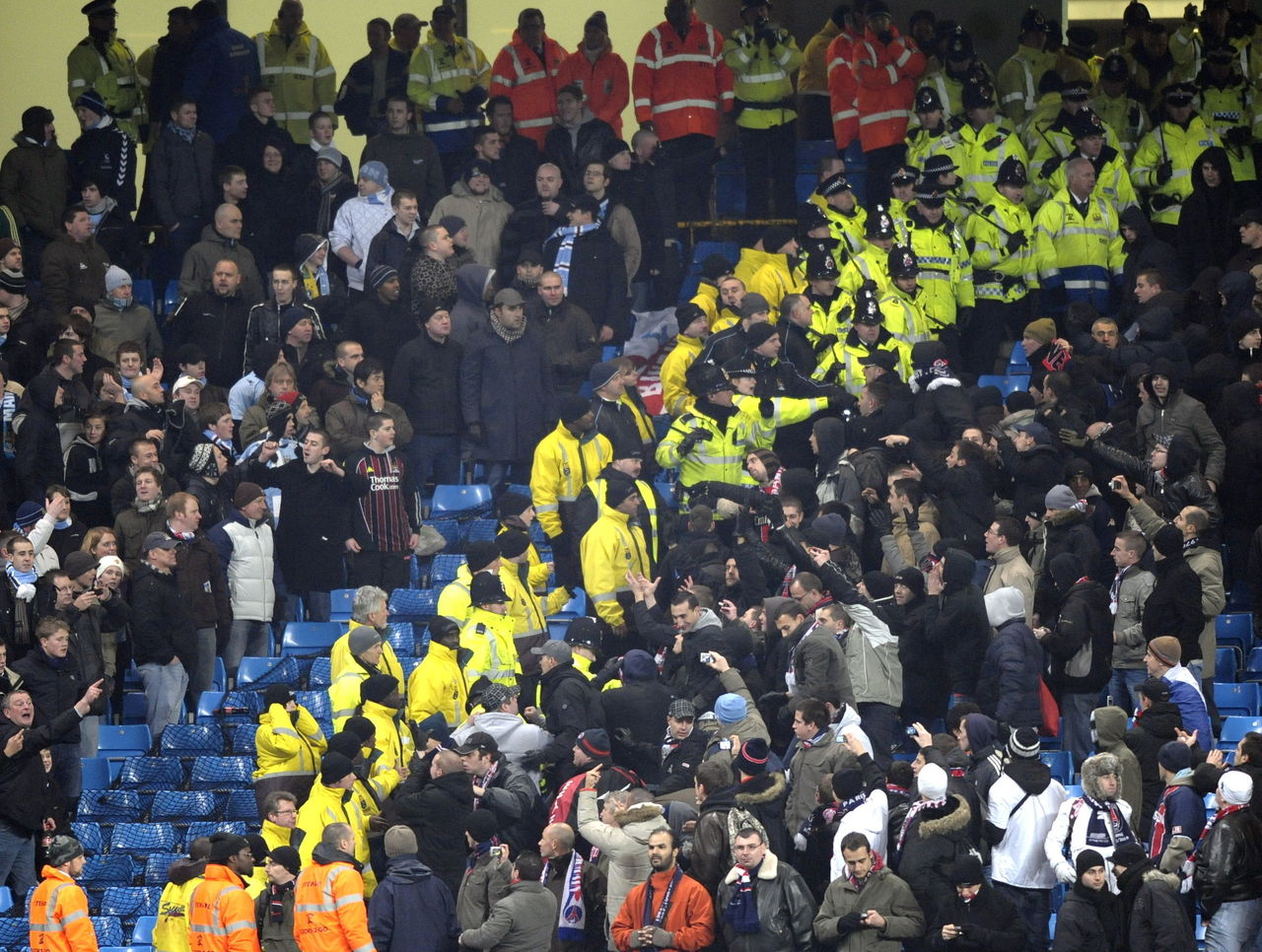
But in Manuel Pellegrini's final season, there are some rumblings that perhaps City could spring an upset in Europe's elite club competition and make a dash to the final. Against an old foe in PSG though, the Eastlands side certainly hasn't been handed a smooth route to the San Siro on May 28.
The coffers get filled
On Sept. 1, 2008, Sheikh Mansour bin Zayed al Nahyan took over as owner of Manchester City, taking the club from decades of fiscal uncertainty and turning it into one of the financial powerhouses in sport. A desperate scramble over the remaining few hours of the transfer window resulted in a £32.5-million signing for Robinho and vying with Manchester United for Dimitar Berbatov. It was the first sign of City flexing its newfound muscle against its arch-rival.
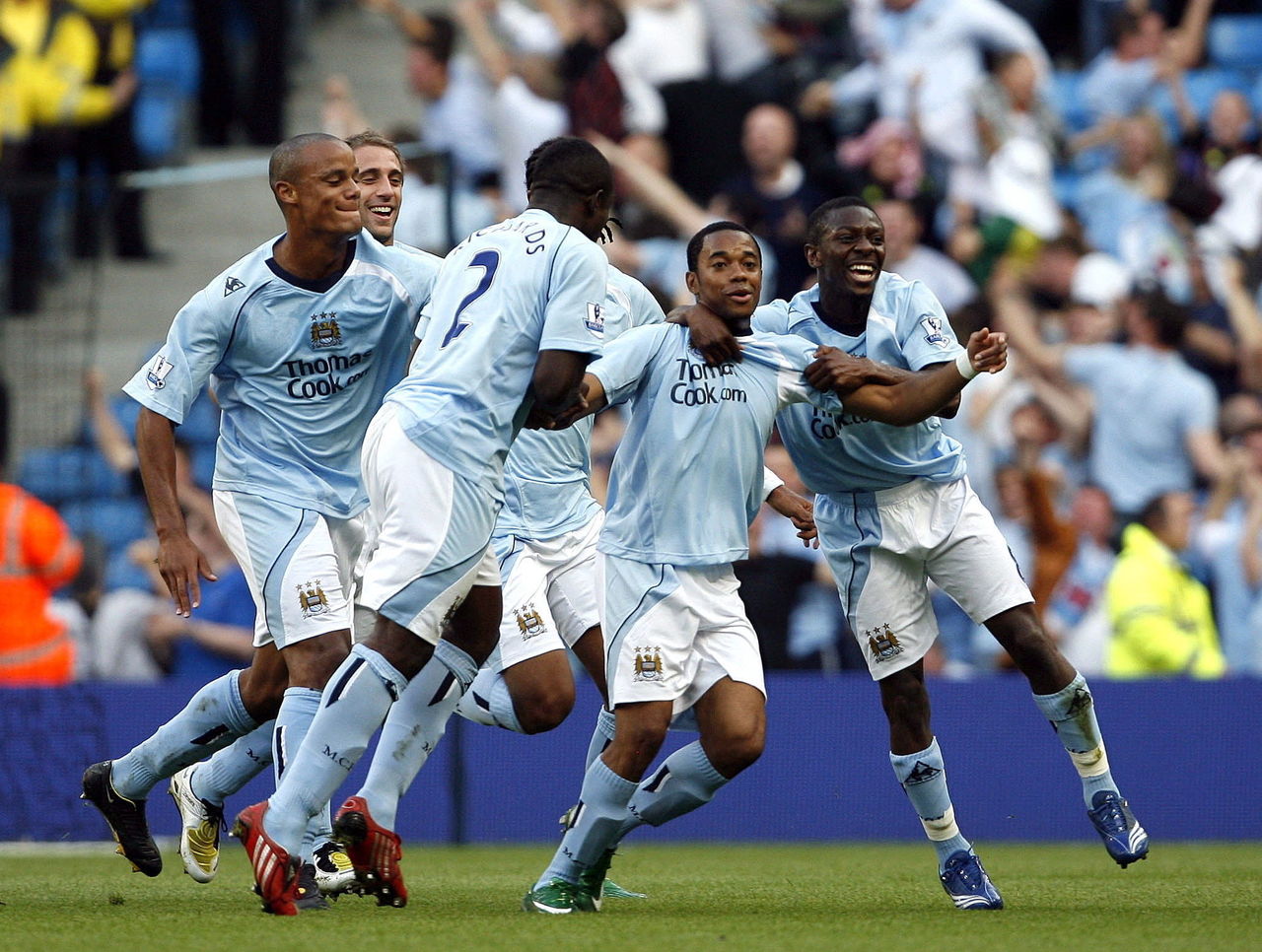
Just over three months later, Les Parisiens turned up at the City of Manchester Stadium some three years short of the windfall from Qatar Sports Investments. The previous two seasons had seen PSG flirt with relegation from Ligue 1 and its strikeforce on that Wednesday night was a far cry from the world-class stars it boasts today, comprising of journeymen Peguy Luyindula and Mateja Kezman.
With City having already confirmed its route beyond the group stage of the UEFA Cup, Mark Hughes rested Robinho, Shaun Wright-Phillips, and Micah Richards to hand opportunities to the likes of Brazilian blooper Jo and a young Daniel Sturridge. The match limped to a dull 0-0, with the only real action unfortunately occurring in the stands.
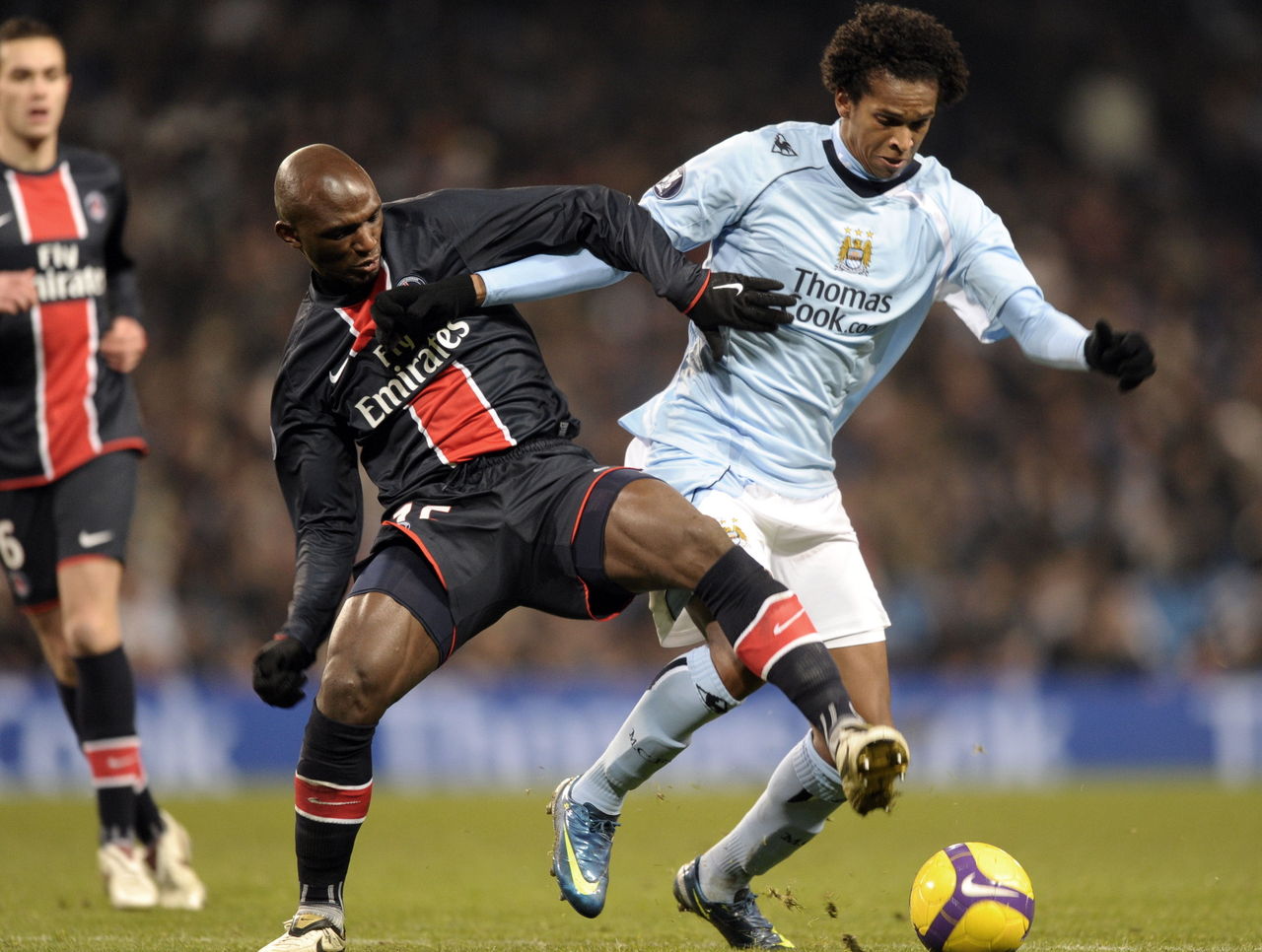
When PSG was able to splash the cash in the transfer market, the signings were immediately of a higher calibre of City, and have been since. In the summer of 2012, the club from the French capital brought in Zlatan Ibrahimovic, Marco Verratti, and Thiago Silva; those from the old Cottonopolis at that time were "strengthening" with Scott Sinclair, Maicon, and Jack Rodwell.
How things are now
Those marquee signings from almost four years ago still remain and both sides pose a much greater threat than in 2008. In the time since, collectively PSG and City have claimed 13 major pieces of silverware, but the Champions League trophy remains elusive.
Laurent Blanc's side is much more fancied with the British bookmakers to conquer its English rival in the legs on April 6 and 12, and then go on to win the competition, and it's not hard to see why.
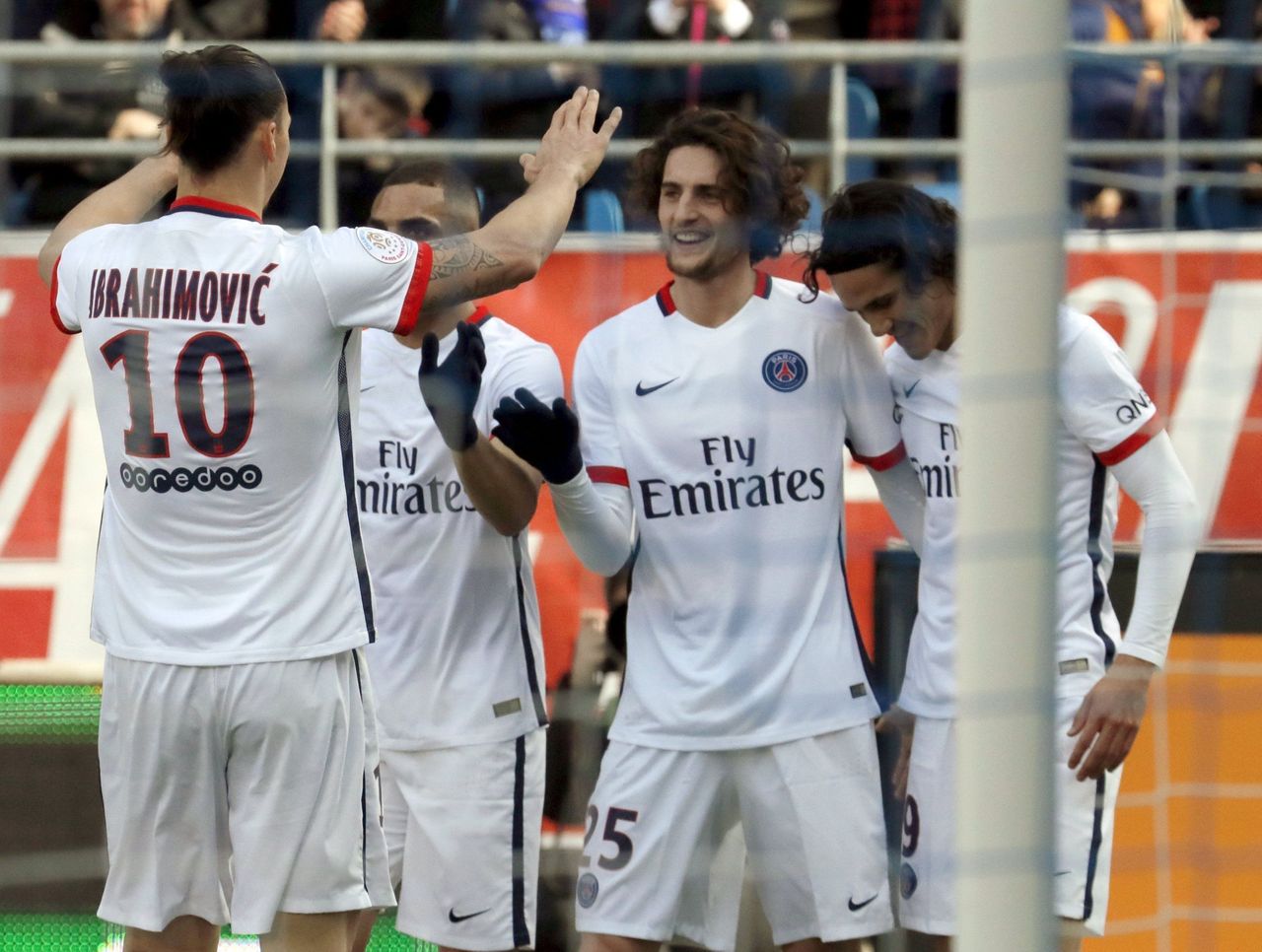
Adrien Rabiot, one of the most promising central midfielders on the continent, has to battle for minutes in the middle with Blaise Matuidi, Thiago Motta and Verratti - City's Fernando wouldn't get anywhere near that starting XI.
The reliance that leans on the exploits of the superb Sergio Aguero at City highlights its lack of depth when it comes to goalscorers, too. True, Ibrahimovic is vital in attack for PSG, but to be able to call upon Edinson Cavani off the bench and its wealth of adventurous midfielders for tallies makes PSG the envy of most Champions League clubs.
And City simply can't compete with those options.
PELLEGRINI ON PSG: “It’s a difficult draw. It’s better to finish at home. Having the first leg away means you know what you have to do.”
— Manchester City FC (@MCFC) March 18, 2016
But how are these two clubs likely to fare in the future?
Future investment
While you can forgive City for casting an envious eye at PSG's packed roster of stars, it can claim that it has stolen a lead off the pitch.
The Camp des Loges, training ground for Les Rouge-et-Bleu since 1975, underwent a facelift fairly recently in 2008, but the Parc des Princes hasn't undergone renovations since 1972 and has under 49,000 seats, significantly less than most rivals at the top level.
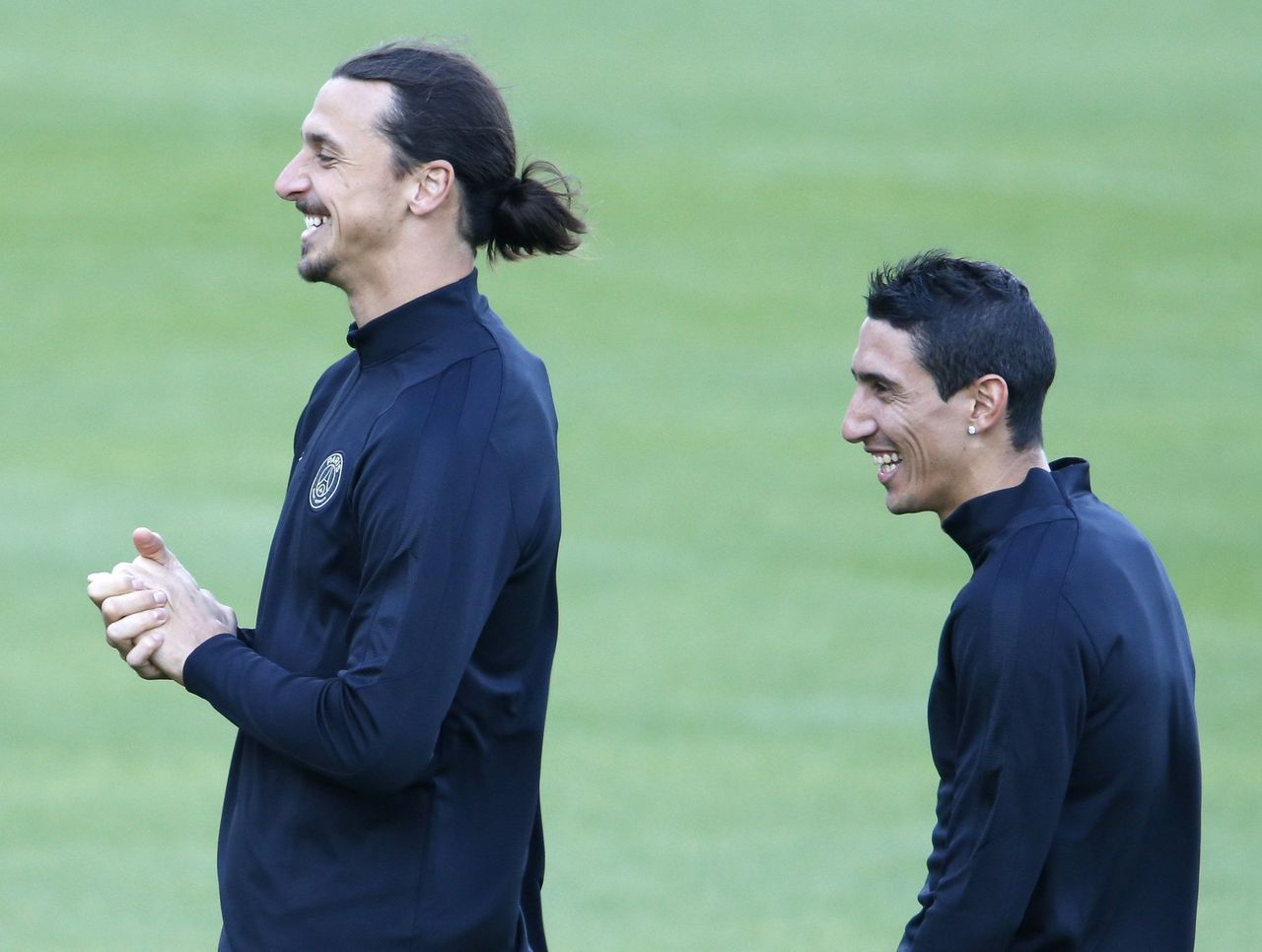
The investment of the Abu Dhabi United Group appears to have longevity at the top of its agenda though, with the Etihad Campus now serving all the club's teams and with a long-term goal of having a homegrown first-team squad from 2027. The Etihad Stadium is also set to have its capacity taken beyond the 60,000 mark, providing even more resources of cash and therefore greater sustainability.
But the two-legged affair next month isn't an arms race, and this season has served some great surprises so far. It does, however, provide a timely benchmark of how far these two ambitious outfits have come.